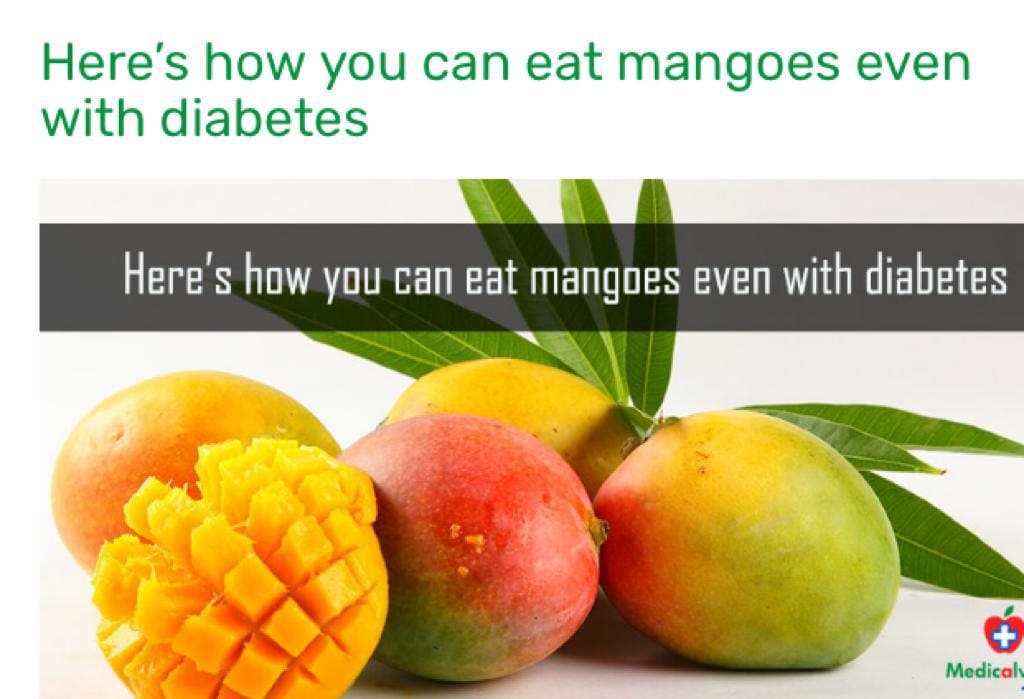RULES FOR EATING MANGOES IN DIABETES:
Mangoes are a delicious fruit, they are tempting juicy summer delights everyone would love to enjoy!
Mangoes are a nutrient-packed food that contains Vitamin A, Vitamin C, and a significant amount of Vitamin E, Vitamin K and B Complex Vitamins. They are high in fibre, calcium, potassium, copper. They contain omega 3, omega 6 fatty acids but are very low in fats. Low Glycemic Index of only 10 but one mango contains about 135 calories (high). Fibre in mango limits rapid absorption of sugars in blood hence it gives a slow boosts to sugars. It is a high carbohydrate fruit whereas in diabetics we strictly focus on low carbohydrate fruits. It also contains antioxidants, plant sterols and other essential photo nutrients.
So with above advantages can we enjoy mango season??
Answer is yes but again in moderation and under portion control.
Here are few rules:
1. If you are having uncontrolled blood sugars mango is not the fruit for you, hence better stay away from them.
2. If you are a well-controlled diabetic maintaining normal sugars then the global recommendations are one cup of fruit consumed by a diabetic should not contain more than 15 gms of carbohydrate so that translates to about 1/2 cup of mango per day or one medium size mango daily.
3. Mango should not be consumed with a meal but should be placed between the meals.
4. It can be best eaten by making small pieces and one should avoid mango shakes, juices, panna, pickles, gudammba etc.
5. Mango should be preferably avoided at nights and should be eaten during day time as mid morning snack or for supper.
6. You can replace mango in place of other starches, grains or dairy products.
If you can not resist eating them, refer to your doctor or nutritionist who can alter your dietary needs for the day and fit in your favourite fruit in the diet plan.
Wishing you a good diabetes control and happy mango season!

